Over and over I've read on this board, when a flaw is pointed out in one holy book or another, that it is being interpreted incorrectly.
Over and over I've read that there are followers in sects centered on these holy books who are interpreting them incorrectly...that they are not 'true' (insert religion name here).
Over and over I've read that the gods of these holy books are perfect and all-powerful. That the books themselves were delivered from those gods.
All this defense thrown up by apologists who say their interpretation is the only correct one. They argue their interpretation with those who are atheist and they argue with other theists.
If these books are so perfect and the gods who sent them so perfect and all-powerful, why are they not written in a way that eliminates any chance of misinterpretation?
Does this not erode the foundations upon which these religions have been built?
Subscription Note:
Choosing to subscribe to this topic will automatically register you for email notifications for comments and updates on this thread.
Email notifications will be sent out daily by default unless specified otherwise on your account which you can edit by going to your userpage here and clicking on the subscriptions tab.




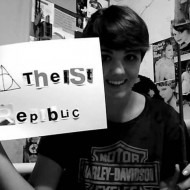

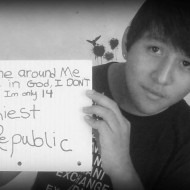
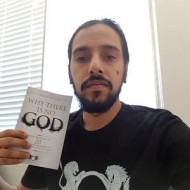
















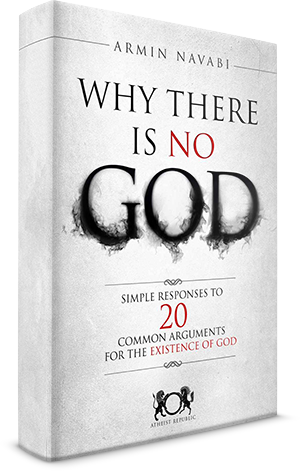
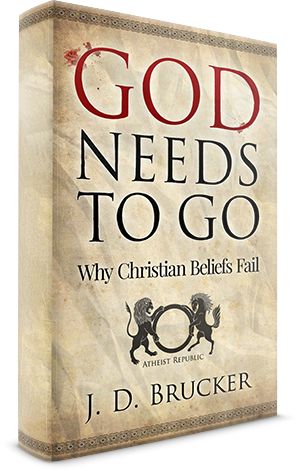

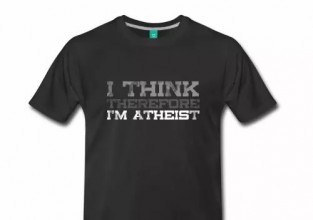

Cyber
As a Muslim, I will try to answer your question from the premise of Islam. Why doesn't my holy book eliminate any chance for misinterpretation?
This is like asking why can't man be restrained from using his free will? In other words, why can't man be like an animal?
When a person is misinterpreting the text of a holy book, he is exercising his free will. That's an ability God has granted him. Just as he has been given the ability to commit sins... lying, stealing, killing etc. Why doesn't god restrain him from doing all of that? It's the same with misinterpretation.
But then, by allowing humans to misinterpret his book, isn't god allowing his book to get corrupted? No. Because (as far as Quran is concerned) the scripture is preserved and the teachings of the prophet, which is the lens we should use to interpret the text, are also preserved.
Therefore, the earnest truth seeker can always understand the truth. If you intend to misinterpret, all you need to do is throw away the teachings of the prophet and give the scripture whatever meaning you want to get out of it.
So you are saying that all of the Muslims that have interpretations other than the ones you hold are willfully misinterpreting your holy book? They have free will, ergo they do this purposely?
I find it interesting (if not very telling) that you just happen to somehow *know* the thoughts and purpose of so many people. Actually, I find it quite arrogant.
Hi was born and raised as a muslim.
Live in country where education about islam is mandatory on all born muslim. We have national exam on islam in order for us to pass schools and accepted to college.
I have a question,
Acording to the history, Al quran Book have been given to the prophet Muhammad through 4 method which is;
1. Gabriel insert the knowledge into his heart without his seeing anything. Its Only Muhammad can feel it.
2. The angel shows themself in front of Muhammad in a form of a man and tell the knowledge using verbal communications until Muhammad memorize it all.
3. The knowledge comes with a sound of bell. According to the hadith, this is the most heavy way felt by Muhammad that his body feel hot eventhough in cold surroundings.
4. Gabriel Shows himself as the way he is. for example when Chapter Al-Muzammil given to Muhammad.
Every word given by Gabriel has been memorized by Muhammad. And it is said that every year during ramadan, Muhammad will need a revision from Gabriel to make sure all information is true and well preserve. However there is no attempt to make an alquran book untill after Muhammad die. The first attemp to make alquran into a book was after Yamamah war due to the death of 70 al quran memorizer. Zaid bin Thabit is one of the memorizer and was the leader of Making alquran into books during uthmaniah government.
What makes you think alquran is still true and as given by God untill today? Even your beloved prophet Muhammad need revision from Gabriel every ramadhan. What makes you think Zaid can memorize it better than Muhammad?
Apparently there is really only one "earnest" interpretation, which just happens to coincidence with Valiya interpretation (nice how that works out). And apparently every Muslim who does not agree with his interpretation---and there are 100's of millions of them---are not sincere/earnest.
Nyarlathotep
When you don;t even know what my interpretations are and how they differ from others' interpretations... or the exegetical principles that I apply in arriving at an interpretation... i can only take what you are saying as hollow prejudice.
Or do you want to get into a serious discussion on this topic of quranic exegesis?
To your above point (your first reply) - why would it matter if Nyarlathotep understands your interpretation or how it differs from other's interpretations? You are of the belief that your interpretation is correct and those who disagree are only doing so because they are freely choosing to believe differently and in error on purpose. You've already presumed that you are correct no matter what and other's are purposefully in error.
Meh. Anyone who claims exegesis is far more likely to actually be practicing eisegesis, it doesn't matter what religion they hold to, the sum of all religious meaning is really that which people have injected into it. If anything doesn't comport with a specific interpretation it can be considered misinterpreted, out of context, or a metaphorical bit of language instead of what it plainly says. It is silly, juvenile, and basically a three year-old with its fingers in its ears yelling over anyone else. I would recommend ignoring such people until the have the fundamental honesty to admit that their texts are full of contradictory ideals.
Well put Travis.
To all the comments above... here is the answer.
You people talk as if you never exercise interpretation or that you never take positions based on your interpretive bias. Do all atheists agree on the issue of death penalty? Do all atheists agree on every single theory on evolution, such as the PET and so on? Are there not serious differences of opinion, with one group saying the other is wrong. Does that mean engaging in interpretation in and of itself is useless?
We all engage in interpretation when it comes to ideological stances. How we interpret is the question? You may have your justification for your interpretation. However, until I hear out your interpretive methods I cannot pass a judgement on your interpretation. None of you guys ever asked me what my interpretative methods are? You jumped to the conclusion that as I am interpreting, I must be adhering to some baseless bias. That is blind prejudice.
Each of you, ranting about the silliness of interpretation, I am sure is engaging in interpretation themselves, in some way or the other.
There is a difference when most atheist disagree with each other.
We can talk about things that we have differing opinions on and logic wont fail because of our beliefs. We are free to consider other truths or facts that differ with what we consider to truths or fact.
Our minds are plastic malleable ever changing and our thoughts the same. Our thoughts flow like water always settling in reason it can take many forms even be disrupted restructured improved and reformed but eventually it always finds itself resting on a foundation of reason. Not all but many theist do not a have this quality and are more like ice with their thoughts frozen in time.
Those theist with the ability to to open their minds, see outside opinions, take in new information and observe and use science, reason and discussion almost always after doing so become atheist this is the real reason why in some holy books knowledge is the fruit of evil.
Zaphod
What if two atheists, both claiming to be following the path of logic and reason, disagree on a subject? Whose reasoning is more true? What tells you that your reasoning is more correct than the other person’s reasoning?
You may then want to explain to me the logic behind your reasoning and argue that your reasoning is sounder based on the logic. Right? That’s the best you can do to prove your point. It’s the same case with my scripture. I will have my logic for interpretation. But unless you hear it out… you can’t judge me.
If two atheists, both claiming to be following the path of logic and reason, disagree on a subject and are truly open-minded as their claims would dictate neither's reasoning is more true but the discussion will yield both of them growing the fundamental bases of their collective knowledge and likely both will walk away with a better and more thought out understanding of the subject matter and a different opinion than either had to begin with.
Zaphod...
You seem to have painted a picture of a utopian world... how beautiful if the world would be if it was indeed like this. Are not the differences between Richard Dawkins and Douglas Murray (both atheists) dogmatic? Each saying the other is wrong! They even debated. Dawkins argued that religion is inherently evil, while Murray differed vehemently.
What about the differences of opinion between Stephen Jay Gould and Daniel Dennett over punctuated equilibrium theory. Were they not trying hard to prove that the other is wrong? Critiquing each other's ideas through books and articles.
This certainly doesn't look like what you claim - "...growing the fundamental bases of their collective knowledge and likely both will walk away with a better and more thought out understanding of the subject matter..." They were not appreciative of the collective knowledge that came out of the debate, but were rather trying to disprove the knowledge in the opposite camp.
You should understand that when it comes to two mutually exclusive options... where only one can be correct... the proponents will beg to differ, uncompromisingly. This is true of all ideologies... not just religion.
But it's probably because you don't know about the nature of debates and discussions in Islam, that you think islam is like a frozen ice. There are issues where muslims scholars will not yield... like in the examples between atheists... and a whole of subjects where scholars differ but don't condemn the opposite view ... to appreciate it you will have to get into the finer details of islamic legal debate.
Honestly, I have never watched or listened to their debate. That said anyone can disagree but when two people are faced with unconvincing bias and both are unable to learn from a debate its a sad thing and can often be chalked up to failure to communicate. So I don't need to in order agree on that point
I never said atheist can't have biases. I also never said they can't agree to disagree or "beg to differ" as you put it.
Interpretation and disagreement is true for everyone, atheist or otherwise.
You said "where only one can be correct... the proponents will beg to differ, uncompromisingly. This is true of all ideologies... not just religion." this however is false as only a closed-mind would beg to differ uncompromisingly.
Let me make it crystal clear, atheist generally like tangible proof and evidence in support of their beliefs and understand the concept of proof and evidence quite well, whereas theist prefer to view their faith in this light.
Thus far, I have had no theist be able to provide the foundation for their faith or belief in deity an average atheist would require to support their beliefs. It makes it difficult for reasonable discussion when people make faith based arguments whether that argument is based on the faith of ones own or the faith of another. Since faith based ideals lack real evidence and real proof it is hard to prove or disprove them.
gospel truth :P
No, engaging in interpretation is not useless, but believing in an interpretation, espeacially an interpretation without fundamental flaws, without the ability to change the said interpretation is what we refer to as closed-mindedness.
To make this about you Val (do you mind if I call you that) On a level of 1 to 10, 10 being as closed minded as they come and 1 being open-minded from what I have read here that you have posted I would give you a 7 because you less closed-minded than say Chuck Rodgers is I mean Chuck Rogers is closed minded to the point of potentially irreparable stupidity. You on the other hand are at least trying to understand what others think though you have closed you mind on several subjects.
Zaphod
Thanks for accepting that engaging in interpretation is not useless. And thanks for the favorable score you have given me.
However, I have a small point on open mindedness. What do you mean by this? To bring back my example of Daniel Dennett and Stephen Gould… would you say they are closed minded, because they didn’t accept each other’s argument?
I certainly wouldn’t. Because if you, using all your ability to reason and understand, come to an understanding on a subject, and somebody else differs based on a set of reasoning that you think is weak… why should you change your opinion?
If this is acceptable in the realm of scientific debates… why not in the realm of religion?
Valiya:You people talk as if you never exercise interpretation or that you never take positions based on your interpretive bias.
I do not interpret ancient texts, nor do I form my positions on interpretations of ancient texts. So, no, we aren't doing the same thing.
Valiya:Do all atheists agree on the issue of death penalty?
Nope. However, our positions aren't based on interpretations of ancient texts.
Valiya:Do all atheists agree on every single theory on evolution, such as the PET and so on?
We don't get theories from ancient texts, we get them from evidence. Arguments about the theory of evolution are based on what can be established with the evidence, not some ancient book found in a temple, so your analogy is false.
Valiya:Are there not serious differences of opinion, with one group saying the other is wrong.
Most of our arguments are based on what the evidence can establish, not what a holy book says.
Valiya:Does that mean engaging in interpretation in and of itself is useless?
Of ancient holy books? They are of historical significance, little else.
Valiya:We all engage in interpretation when it comes to ideological stances.
I think you have changed the usage of interpretation in your argument. I am not sure if you are engaging in an etymological fallacy or a equivocation fallacy, but it is certainly one of them.
Valiya:How we interpret is the question?
Based on evidence? Oh, that's right, your talking about an ancient holy book. Welp, there goes that...
Valiya:You may have your justification for your interpretation.
Sure do. I can also demonstrate it. That is what separates real knowledge from mysticism.
Valiya:However, until I hear out your interpretive methods I cannot pass a judgement on your interpretation.
I can if you are interpreting the chronicles of Mithra, and doing so in a way where you are only cherry picking the bits you like and discarding the rest.
Valiya:None of you guys ever asked me what my interpretative methods are?
I am sure you will tell us anyway.
Valiya:You jumped to the conclusion that as I am interpreting, I must be adhering to some baseless bias.
Bias doesn't have to be baseless to be bias, the vast majority of bias has a base, that doesn't make it any less biased.
Valiya:That is blind prejudice.
Yep, I admit I have a prejudice against ancient holy texts claiming to have ultimate truth, but appear to have nothing but the ignorance of the time period within its pages.
Valiya:Each of you, ranting about the silliness of interpretation, I am sure is engaging in interpretation themselves, in some way or the other.
Interpreting evidence? Sure. Interpreting ancient holy texts looking for straws to grasp and ways to hammer it into shape? Not so much.
TRAVIS
You have derailed the entire discussion.
The thread started because cyber questioned the very need for interpretation of scriptures.
That’s why I showed to you that interpretation is something that we all indulge in, irrespective of our persuasions.
What you have basically attacked is the fact that I am interpreting an ancient book… while you guys are interpreting available evidence and so on. Therefore, you have agreed to the need for interpretation. To that extent, I am glad that my efforts have borne fruit.
Now, I would like to know why you are so much against interpretation of ancient text? If you begin from the premise that ancient scriptures have nothing in them of any value… and therefore not worth interpreting… then I think that calls for a separate debate in itself.
You can probably start a new thread… and let’s discuss it.
If I can show to you that there is value in understanding ancient text (Quran)… then that would prove that interpretation of this text is a useful exercise.
Moreover, my interpretive tools are based on logic and reason… in fact more so than yours. This is what I was basically trying to show in my thread on morality. And all I found was that you guys are wallowing in a medley of ambiguities:
Some of you guys said that morality is decided based on growing human knowledge (which would make morality extremely unreliable), while some said that it would be based on feeling empathetically for the other person (which would make non-vegetarianism an evil), and some said that it is based on social contract (which would justify all the evils once supported by societies), and some said that it’s based on a fear of consequences (which would mean that the rich and the mighty can do whatever they like).
Therefore, my case is that understanding ancient texts is a necessity. And for the right understanding, we need interpretation.
Valiya:You have derailed the entire discussion.
Actually, I put it back on track.
Valiya:The thread started because cyber questioned the very need for interpretation of scriptures.
That is right, he questioned the need for interpretation of ancient holy texts. Not interpretation in general. You are the one that tried to expand the discussion to any type of interpretation when the poster clearly meant textual criticism of ancient holy books. You attempted to conflate that with every other usage of the word, resulting in either a etymological or equivocation fallacy, potentially both.
Valiya:That’s why I showed to you that interpretation is something that we all indulge in, irrespective of our persuasions.
With a fallacy.
Valiya:What you have basically attacked is the fact that I am interpreting an ancient book… while you guys are interpreting available evidence and so on.
Not just an ancient book, but a book almost everyone here holds to be fictional. Is it really any surprise that we think performing exegesis on it is unnecessary?
Valiya:Therefore, you have agreed to the need for interpretation.
Not of everything in existence. I would also consider exegesis of Harry Potter or the Vedas to be a waste of time as well.
Valiya:To that extent, I am glad that my efforts have borne fruit.
If your effort was to ensure that I not take you very seriously, you have borne an orchard.
Valiya:Now, I would like to know why you are so much against interpretation of ancient text?
Because it is a waste of time.
Valiya:If you begin from the premise that ancient scriptures have nothing in them of any value… and therefore not worth interpreting… then I think that calls for a separate debate in itself.
Actually, that is precisely what this entire thread is about.
Valiya:You can probably start a new thread… and let’s discuss it.
I don't start threads, especially on topics that I don't have a great deal of interest in.
Valiya:If I can show to you that there is value in understanding ancient text (Quran)… then that would prove that interpretation of this text is a useful exercise.
Possibly, if you can show that it is value that could not be gotten easier elsewhere.
Valiya:Moreover, my interpretive tools are based on logic and reason… in fact more so than yours.
Ah, the old "I know you are but what am I" dodge, how quaint.
Valiya:This is what I was basically trying to show in my thread on morality.
Considering that your idea of morality is merely acting consistently with divine mandate, you have no basis to determine if such mandates are moral at the start.
Valiya:And all I found was that you guys are wallowing in a medley of ambiguities:
Divine command has all of the same pitfalls, an none of the strengths of secular moral systems. This is probably why secular countries are some of the most peaceful on the planet, with extremely low crime rates.
Valiya:Some of you guys said that morality is decided based on growing human knowledge (which would make morality extremely unreliable)
Far more reliable than a set of laws created by iron and bronze-age societies that still saw preteen marriage as a good thing and homosexuality as a death sentence.
Valiya:while some said that it would be based on feeling empathetically for the other person (which would make non-vegetarianism an evil)
No, actually that would only make non-cannibals moral, as persons do not denote other animals.
Valiya:and some said that it is based on social contract (which would justify all the evils once supported by societies)
This is the same kind of reasoning that divine command falls prey to. Divine command would justify all the evils ever supported by religions.
Valiya:and some said that it’s based on a fear of consequences (which would mean that the rich and the mighty can do whatever they like).
Actually, with heaven and hell, religion has a monopoly on the appeal to consequences fallacy.
Valiya:Therefore, my case is that understanding ancient texts is a necessity.
Which you haven't demonstrated.
Valiya:And for the right understanding, we need interpretation.
Right understanding of what? Reality? All we have every really found in holy text was a little history interspersed with fantasy and science fiction.
"You people talk as if you never exercise interpretation or that you never take positions based on your interpretive bias."
Well, that's your interpretation of what any of us is doing...
"Do all atheists agree on the issue of death penalty? Do all atheists agree on every single theory on evolution, such as the PET and so on?"
Atheists do not have any need to agree on things like this as atheists do not claim to be a homogenous group with tenets and dogma. We are simply people who claim no gods. That's it.
"You may have your justification for your interpretation. However, until I hear out your interpretive methods I cannot pass a judgement on your interpretation."
You have already passed judgement, many times.
"None of you guys ever asked me what my interpretative methods are?"
It doesn't matter to me. Since you are interpreting an ancient text as divine any interpretation of it is an exercise in futility.
"You jumped to the conclusion that as I am interpreting,"
You may not be doing the actual interpretation. You may be relying on the interpretation of others...handed to you as dogma.
"I must be adhering to some baseless bias."
Or they could be. Or both.
"That is blind prejudice."
Oh, it's not blind that I consider holy books to be hogwash.
"Each of you, ranting about the silliness of interpretation, I am sure is engaging in interpretation themselves, in some way or the other."
We rant, and you do not? Interesting.
Forgot to add...
I think I have answered the fundamental question the topic initiator asked. Why don't holy books eliminate any chance of misinterpretation? I haven't heard any responses to that.
Your answer is inadequate. Freewill is not a logical answer and just an excuse for apologist looking justification of their flawed Gods. If there was a God he would not need holy books and nor would he want them for he would know about human error and misinterpretation.
This is just biased thinking.... on what grounds are you giving this definition of God? What makes you think a God wouldn't need holy books? Language is the means of communication for humans. And God is communicating to us in human language to express his message. That's what a holy book is all about.
if you can agree that we have been given the freedom to either sin or work righteousness... then on what grounds do you say God should not allow for misinterpretation? It's just another sin. However, as I said, for the earnest truth seeker the means are always open. Interpret from the prophet's teachings... and it's clear and easy.
Your right, I did make an assumption which does mean I was biased so you got me there. The bias I had was that i figured perhaps wrong, that it there was a God it would not be a complete idiot god. As an non idiot God it would not need Prophets or books to tell us something, it would find another way or just truly leave us to free will with no opinion as to our actions as it would accept all blame unto itself. This would be the logical way to handle things
On what grounds do you assume Mohammad was actually the prophet he's claimed to be? Why would if you search for truth, just accept it as fact? Why do you believe you holy book is truth. How are you sure that not some other group of Muslims are not the true Muslims and you are not the one in the wrong? How do you know for sure the Atheist are not right?
You said "for the earnest truth seeker the means are always open." with this I agree but then you go on to say "Interpret from the prophet's teachings... and it's clear and easy. " and I sense a narrow scope and closed mindedness, with which one can not truly be an earnest truth seeker unless they do so in vain.
Just because something makes sense to someone does not make it true.
Zaphod
You have raised some very interesting questions... i will answer them in a bit, once i finish some urgent tasks here. But please do keep a lookout for the answer. BTW... you can call me Val... sounds like Val Kilmer... who wouldn't like it?
Glad you like the name Val for short, but this much cooler Val who tested the endurance of the contestants on the show Solitary is way cooler and was the one that came to mind when I thought of calling you that.
Sorry, forgot the link: http://www.hulu.com/watch/5272#i0,p0,d0
Doh! - "Our video library can only be streamed within the United States."
You can bitch and moan that atheist disagree as much as Muslims do (and for what it is worth, they probably disagree more than Muslims), you will never be able to escape what you said:
You told us that "the earnest truth seeker can always understand the truth". This means that anyone who disagrees with you is not serious. That is one of the most narcissistic things I've ever heard, and it is the most narcissistic thing I have ever heard an apologist say, and that is not small feat.
Pages